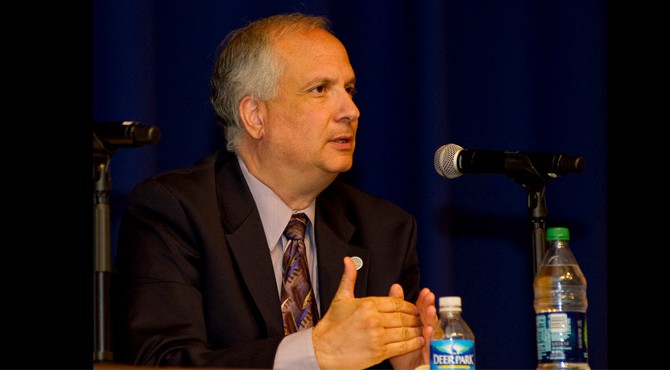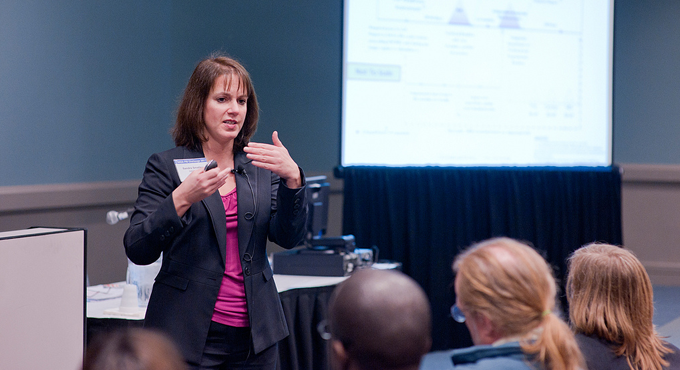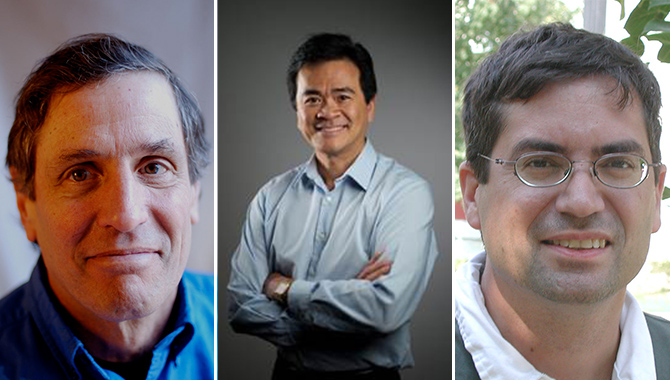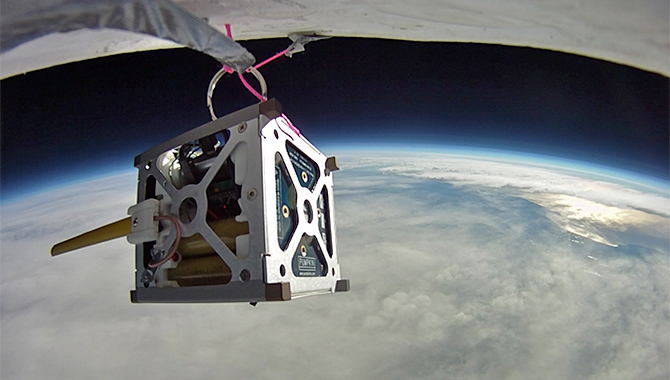
Ed Hoffman talks about his transition into the role of NASA Chief Knowledge Officer full time.
In January 2012, the Aerospace Safety Advisory Panel, an advisory group established by Congress, recommended that NASA “establish a single focal point (a Chief Knowledge Officer) within the agency to develop the policy and requirements necessary to integrate knowledge capture across programs, projects, and centers.” In response to this recommendation, NASA Administrator appointed Dr. Ed Hoffman to serve as the agency’s Chief Knowledge Officer.
ASK News: For over two decades, you served as NASA’s APPEL Director before assuming the role of NASA Chief Knowledge Officer. Can you tell us how your new role will differ from your previous one as the APPEL Director?
Ed Hoffman: I think that there is more continuity between the two organizations than differences. I think the common theme of both has to do with supporting the workforce from the standpoint of enabling success, learning, and providing strategies for how to work effectively together. If you look at other organizations in government, in industry, internationally, there is a heavy emphasis on the capture, the management, and the sharing of knowledge.
I think fundamentally the role of the Chief Knowledge Officer is facilitating effective knowledge management across the organization. The way we make decisions is in a federated way, as a community, and that’s really what takes place. My role is to be an advocate for the workforce in terms of their knowledge needs.
When I look at the position of Chief Knowledge Officer more closely, I see it as trying to accomplish a few things. First, it has to do with reflection – to encourage practitioners to take time to be reflective practitioners. That might sound easy, but in a project world, we’re all focused on being busy, on time, on schedule, and running around. We know that we need to have time to stop and think, to reflect, and to look at what is working and what is not. So the one part of it is how do we promote just the awareness of the need for reflective leadership?
Second is the sharing component, to really make sure that we have an organization and projects and programs that work off the principle of sharing your expertise, sharing your wisdom, sharing your knowledge. Again it sounds straight forward, but we know from successes that the key ingredient is a team that communicates aggressively, a team that shares, and a team that is open about what is working and what is not. We also learn from failures. We have cases where we did do an effective job of sharing our wisdom and our collective understanding with what was going on, and that is more important as the work becomes more complex, as we have more interfaces and stakeholders, and it is more important as we have a more diverse group that we work with.
A third thing that I hear is important as I go out into the field and talk to folks is the importance of access—access to knowledge and wisdom. We have created an environment where people need to have access to the people to talk to, to training and learning, to building their communities of practice, and also to having alliances and networks. There is also access through technology such as social media and being able to go into the computer and to find what or who you are looking for.
So that are the three things I am trying to emphasize in my new role as NASA Chief Knowledge Officer as I work collaboratively with other agency chief knowledge officers: the reflective practitioners, sharing of knowledge, and access to that wisdom.
ASK News: How would you characterize the state of knowledge management across NASA?
Hoffman: There are a lot of excellent activities going on. I would say on the whole if I look at NASA knowledge compared to other organizations I am familiar with, I would probably say that we are in the top ten percent of organizations, in terms of having a lot of good things that are taking place. If you look at our NASA knowledge map you can see we’ve got some excellent work going on in terms of capturing case studies, capturing NASA stories. The map also shows great work in the area of sharing our lessons, pause and learn activities, and learning from reviews. We have face-to-face activities with people coming together to share and to learn. I think we are good at having experts who share, and we have strong communities of expertise in many different disciplines—we are often leaders in that. Having said that, there are areas that we really need to improve on.
ASK News: What area do you see as the biggest challenge?
Hoffman: Search is a big challenge. Right now, we have so many different things that are out there it is hard for a practitioner to know where to turn, where to look to find what they need to know. We have a lot of work as far as taxonomy and tagging to meet this need.
ASK News: A lot has been accomplished over the past year in the NASA knowledge community. Can you tell us about what you hope to achieve with the knowledge communities inside and outside of NASA in the coming months?
Hoffman: When I was appointed NASA Chief Knowledge Officer, there were really three things that I wanted to see happen. One is I wanted there to be a chief knowledge officer or to be a knowledge point of contact at each NASA center and each mission directorate. These people are accountable for the knowledge in their organization, and we have assembled an outstanding team that is dedicated and passionate.
One of the things I really love is that I get more and more people coming up to me saying they want to be more involved in the knowledge community. I had a meeting just a couple days ago with some folks at NASA who had seen the knowledge map and they wanted to offer their organization’s expertise. I am excited because a community has formed and it is continuing to grow.
I feel really proud of the community and the momentum it’s created with the knowledge map. I am excited now about coming up with more support in terms of knowledge tools, and the support from the community outside of NASA. In particular I’d like to highlight the Federal Knowledge Management Working Group community, which is chaired by the Federal Bureau of Investigation. There is tremendous support across the entire federal system, which is motivating. We learn from each other. Of course there is also the work that is being done with the International Project Management Committee and the young professional activities of the International Astronautical Federation. Those are all things that connect back to our sharing knowledge and working and learning from each other.
ASK News: Has there been anything in the past year that has surprised you?
Hoffman: Truthfully, I am surprised at how much interest and support there is across the agency and outside NASA in terms of having a healthy and effective knowledge community. I can’t see any instances where I have been disappointed, which is really unusual when you start a change like this. Usually there is a pushback, usually there are people fighting you. I don’t see any of that, and maybe it is because we all see the importance of it, and a major contributor has been the early knowledge work that had been going on for a decade before there was an agency Chief Knowledge Officer. That probably has been the biggest surprise at this point.
What the next five or ten years holds for aerospace projects is uncertain. The successes and failures of today will drive how organizations learn to do their work better. “There are exciting pressures in terms of running a program,” said Hoffman. Running a program at low cost, quick schedule brings with it its own set of risks that may end in failure. “It opens us to learn at the different levels that learning takes place.“
Ultimately, asked Hoffman, “What are you willing to pay for something that no one has ever done and could be really great that you might not see for five to ten years?
Image Credit: NASA/William Hrybyk









